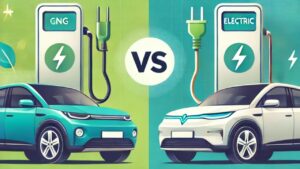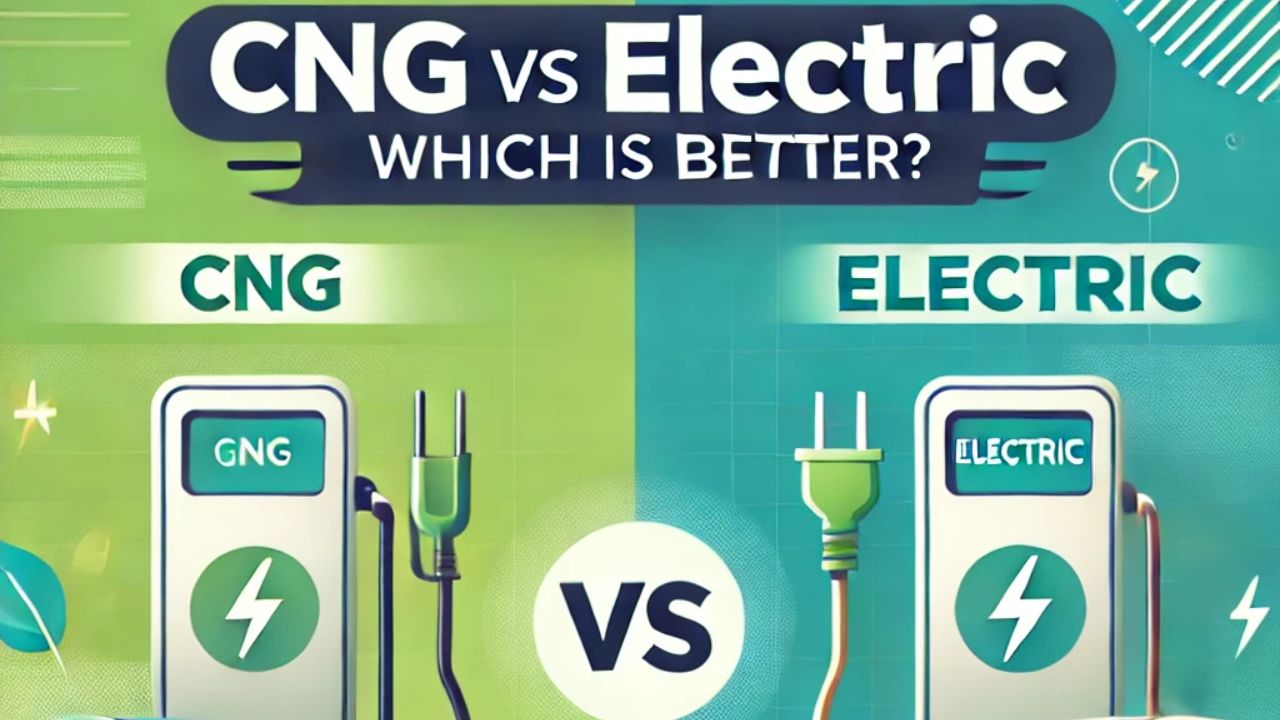CNG vs Electric Cars: The automotive market has evolved significantly in recent times. Today, there’s a wide variety of options available, including petrol, diesel, CNG, electric, hybrid, hydrogen, and ethanol-powered cars. With so many choices, it’s natural for car buyers to feel confused, especially when deciding between CNG and electric cars.
If you’re planning to buy a new car but can’t decide which one is better, we’ve got you covered. Let’s explore which option makes the most sense in terms of mileage, convenience, and cost.
What Are CNG and Electric Cars?
CNG Cars
CNG stands for Compressed Natural Gas, which is a biofuel often used alongside petrol. It produces less carbon emissions compared to petrol or diesel, making it more environmentally friendly.
Electric Cars
Electric vehicles (EVs) run on battery power and need to be charged using electricity. While they have a limited range, their popularity is rapidly growing in India. Major automakers are entering this segment to meet increasing demand.
How to Choose Between EV and CNG?
When choosing a car, two factors play a crucial role:
1. Purpose: Are you buying the car for personal or commercial use?
2. Budget: How much are you willing to spend?
For instance, if your daily commute is around 50 km, both CNG and EV options could work for you. However, if you travel closer to 100 km daily, an EV may not be as practical due to its range limitations. The range of an EV also depends on the number of passengers and load, whereas CNG cars remain consistent in performance.
Additionally, CNG cars can switch to petrol mode when the gas runs out, allowing you to reach the next CNG station. Filling a CNG tank takes only 4-5 minutes.
In contrast, EVs can travel only as far as their battery allows. If the battery runs out mid-journey, the only option is to tow the vehicle. Moreover, charging stations on highways are still limited, and charging times vary. Fast chargers take about an hour, while regular chargers need 7-8 hours for a full charge.

Know Key Features: EV vs CNG Cars
CNG Cars
- Limited gas capacity in the tank.
- Travel restricted to CNG availability.
- Lower pickup compared to petrol/diesel cars.
- Requires stepping out of the car during refueling.
- Less effective on hilly terrains.
Electric Cars
- Requires sufficient battery charge to function.
- Offers better pickup than CNG cars.
- Longer charging time at stations.
- Suitable for all terrains.
Cost of Charging and Refueling
Electric Cars
A 25 kWh battery costs around Rs200 to fully charge at home (takes ~8 hours with a 3.3 kW charger).
Using a fast charger (50 kW), the cost is around Rs150 for a full charge in just an hour.
CNG Cars
A 14 kg CNG cylinder costs approximately Rs750 to fill (10 kg capacity).
A car with 25 km/kg mileage will cover 250 km with a full tank.
Cost Per Kilometer
CNG Cars
At Rs75/kg for CNG and 25 km/kg mileage, the cost per km is Rs3.
Electric Cars
If charging costs Rs200 for a 200 km range, the cost per km is Rs1.
Which One Is Better for You?
Both CNG and electric cars are environmentally friendly and economical in their own way. CNG cars are better suited for longer journeys and areas with limited charging infrastructure. On the other hand, EVs are ideal for short commutes and urban use, offering lower running costs and zero emissions.
Choose based on your daily commute, access to infrastructure, and overall preferences. Both options are excellent steps toward sustainable transportation.
